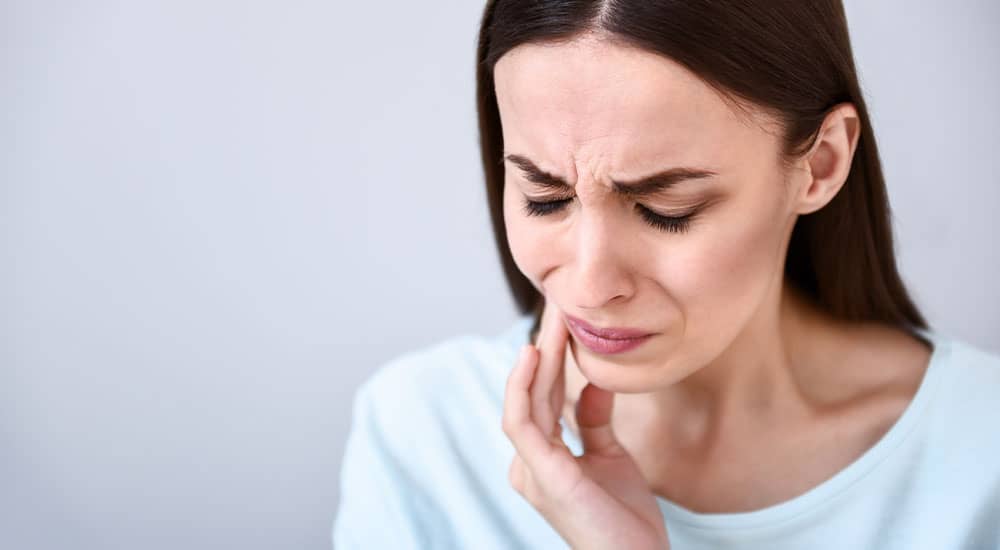Now that we’re in February, we are well and truly back into the working week. And sometimes that can only mean one thing, stress, burnout, and teeth grinding. Here at Bite Dental Brisbane City, we want to help you never grind again!
What is teeth grinding (bruxism?)
Bruxism is excessive grinding or clenching of teeth against one another, and is a common stress symptom. There are two main types of bruxism—daytime/diurnal bruxism (one that occurs when people are awake) and sleep/nocturnal bruxism (one that occurs during sleep).
Bruxism occurs in adults and children, with an incidence of 18.6% in adults and 30% in children. Bruxism can lead to excessive wear on teeth and in some cases lead to pain in the jaw or muscles of the face.
How do you know you have it?
People who suffer from teeth grinding may be unaware of the habit because it typically occurs while they sleep. Common symptoms that people experience with clenching/grinding habits are morning symptoms of a dull headache, jaw muscles that hurt or are tight, trouble opening the mouth wide, long-lasting pain in the face, damage to the teeth—worn tooth surface, loose teeth and broken dental fillings. Sometimes, partners or parents can hear the grinding noises at night.
What causes teeth grinding?
The common causes for bruxism are emotional stress (anxiety and anger). If your work week is stressing you out, chances are this is the cause of your bruxism.
However, jaw clenching and grinding can also be caused by drug use, physical illness, sleep problems, bad tooth alignment and problems with dental work. Some people can also get bruxism as a side effect of antidepressants.
How to treat bruxism
Daytime bruxism
There are many ways to treat bruxism. Stress and other psychosocial parameters can cause daytime bruxism. This can be managed by habit modification, relaxation therapy, awareness techniques and biofeedback. Counselling and stress management may reduce stressors in life which can then reduce bruxism.
Injectables for bruxism
Bruxism injections are muscle relaxant injectables (also known as anti-wrinkle injections). The injections are used at the site of the masseter muscle; the muscle connecting the lower jawbone and the cheekbone. Relaxing this muscle should have no other effects other than relaxing the targeted muscle to reduce grinding and clenching. Which in turn should reduce the amount of jaw pain you are experiencing.
Bite has partnered with injectables provider, Dr Axell Jones, to provide a range of minimally invasive procedures. Dr Axell is an expert in his field. He uses the highest quality products which last much longer than others. Therefore, Dr Axell can get more results using the same amount of product compared to other injectors. In our humble opinion, we believe him to provide the best cosmetic injectables in Brisbane.
Sleep bruxism: Mouth Appliances
If you’re clenching your jaw in your sleep, appropriate intervention might include mouth appliance therapy and medication. A dental mouthguard (night guard or bite splint) might be prescribed by your dentist to protect your teeth and jaw. This is worn at night and works by creating a barrier between upper and lower teeth while you are grinding your teeth in sleep. It can prevent tooth wear, tooth injury and reduce night-time clenching. While this treatment may not cure bruxism, the relief it provides is phenomenal.
Improving Sleep to aid jaw grinding
Improving the quality of sleep is also very important. This may include reducing the use of stimulants such as caffeine and nicotine, having enough sleep, making sure you have a good bedtime routine and relaxing before bed.
Teeth grinding and TMD
Muscle deterioration can occur with the overworked muscles of the jaw. This can sometimes require neuromuscular therapy to restore the health of the muscles. Adjunct therapies such as physiotherapy, chiropractic, botox and acupuncture have been found beneficial for such patients.
In severe cases, clients can experience jaw dysfunction called Temporomandibular Disorder (TMD). These clients are referred to our specialist Dr Michael Burgess who specialises in jaw joint (TMJ) surgeries.
What should I do if I am concerned?
We are seeing more and more clients developing clenching or grinding habits when experiencing stressful situations in life. If you are one of them, have a chat with us! Our Bite Dentists can do a comprehensive exam, assess the jaw joint, review the symptoms, and organise a pathway to help you manage the issue.
Right now, we are offering new patients a full check-up for $99. This involves a consultation with a dentist, a full check-up exam, and any necessary x-rays. You are also able to discuss your smile and whitening goals.


